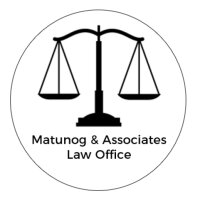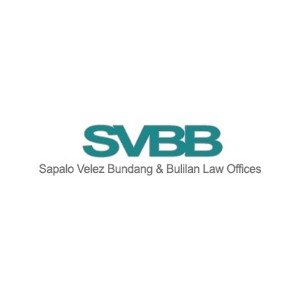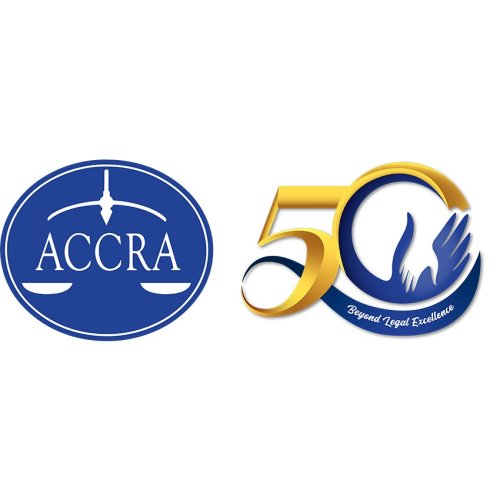Best Government Relations & Lobbying Lawyers in Davao City
Share your needs with us, get contacted by law firms.
Free. Takes 2 min.
List of the best lawyers in Davao City, Philippines
About Government Relations & Lobbying Law in Davao City, Philippines
Government relations and lobbying in Davao City, Philippines involve the strategic communication and negotiation between individuals, corporations, or organizations and government bodies to influence policy-making, regulations, and legislation. While lobbying is relatively nascent in the country, it is increasingly recognized as a legitimate way for various interest groups to engage with public officials and advocate for policy changes. The practice is typically conducted by lobbyists who have a deep understanding of the political landscape and can effectively represent their clients' interests.
Why You May Need a Lawyer
There are several situations where an individual or business involved in government relations and lobbying may require legal assistance:
- Compliance: Navigating complex regulatory environments and ensuring that lobbying activities comply with all applicable laws and ethical standards.
- Representation: Engaging professional legal representation when working with government officials to ensure that communications and negotiations are conducted appropriately.
- Drafting Proposals: Legal expertise can be vital in drafting proposals or position papers to present to government entities.
- Advocacy Strategy: Developing comprehensive advocacy strategies that align with legal requirements.
- Dispute Resolution: Resolving disputes that may arise from government contracts or decisions affecting the client.
Local Laws Overview
Laws governing government relations and lobbying in Davao City are influenced by national legislation but have peculiarities at the local level. Key aspects include:
- Lobbying Regulations: Currently, there is no specific legislation that strictly regulates lobbying; however, general legal frameworks regarding ethical conduct and anti-corruption apply.
- Political Environment: Understanding the political landscape and how local government units (LGUs) operate in their decision-making processes is crucial.
- Transparency and Accountability: Due to increasing calls for transparency, activities related to government relations must adhere to principles of fair play and accountability.
Frequently Asked Questions
What is the role of a lobbyist in Davao City?
A lobbyist’s role in Davao City is to influence government policy and legislation on behalf of their clients by building relationships with government officials, providing expert knowledge, and communicating their clients' positions effectively.
Is lobbying legal in the Philippines?
Yes, lobbying is legal in the Philippines, although it is not as formally regulated as in some other countries. Activities must comply with general legal standards and ethical practices.
How can a lawyer assist in government relations in Davao City?
A lawyer can assist by ensuring compliance with laws, providing strategic advice, preparing necessary documentation, and representing clients in discussions or negotiations with government officials.
Are there any ethical considerations in lobbying?
Yes, ethical considerations include honesty, transparency, conflict of interest avoidance, and adherence to anti-corruption laws.
Do we need to register as a lobbyist in Davao City?
Currently, there is no formal requirement to register as a lobbyist in Davao City, but staying informed about changes in laws and regulations is recommended.
How successful are lobbying efforts typically?
Success in lobbying varies depending on the issue, strategy, and relationships built. Effective lobbying requires thorough research, clear messaging, and strong advocacy skills.
Can individuals lobby on their own behalf?
Yes, individuals can lobby on their own behalf, though engaging professionals who understand the political and administrative context may enhance effectiveness.
What is the cost structure for hiring a lobbyist in Davao City?
Costs can vary widely based on the complexity of the issue, the experience of the lobbyist, and the extent of the lobbying effort required.
Are international companies allowed to lobby in Davao City?
Yes, international companies can engage in lobbying activities, provided they adhere to local laws and consider cultural nuances in their strategies.
What sectors most commonly engage in lobbying efforts in Davao City?
Common sectors include agriculture, tourism, mining, and infrastructure, among others, each seeking to influence policies that impact their operations.
Additional Resources
The following resources, governmental bodies, and organizations may provide additional guidance and information:
- Davao City Investment Promotion Center: Offers insights into local business regulations and opportunities for advocacy.
- Philippine Association of Professional Lobbyists: Provides resources and support for those involved in lobbying activities.
- Ombudsman of the Philippines: For reporting unethical conduct or exploring legal frameworks regarding anti-corruption.
Next Steps
If you require legal assistance in government relations & lobbying in Davao City, consider the following steps:
- Identify Your Needs: Clearly define what you wish to achieve in your lobbying efforts and identify the legal expertise required.
- Engage a Local Lawyer: Seek out a lawyer or legal firm in Davao City with experience in government relations to guide you through the process.
- Research and Documentation: Ensure all necessary background research is done and documentations are prepared to support your case.
- Maintain Ethical Conduct: Adhere to ethical and legal standards to foster trust and credibility.
- Stay Informed: Regularly update yourself on any changes in laws and regulations that might affect your lobbying activities.
Lawzana helps you find the best lawyers and law firms in Davao City through a curated and pre-screened list of qualified legal professionals. Our platform offers rankings and detailed profiles of attorneys and law firms, allowing you to compare based on practice areas, including Government Relations & Lobbying, experience, and client feedback.
Each profile includes a description of the firm's areas of practice, client reviews, team members and partners, year of establishment, spoken languages, office locations, contact information, social media presence, and any published articles or resources. Most firms on our platform speak English and are experienced in both local and international legal matters.
Get a quote from top-rated law firms in Davao City, Philippines — quickly, securely, and without unnecessary hassle.
Disclaimer:
The information provided on this page is for general informational purposes only and does not constitute legal advice. While we strive to ensure the accuracy and relevance of the content, legal information may change over time, and interpretations of the law can vary. You should always consult with a qualified legal professional for advice specific to your situation.
We disclaim all liability for actions taken or not taken based on the content of this page. If you believe any information is incorrect or outdated, please contact us, and we will review and update it where appropriate.












